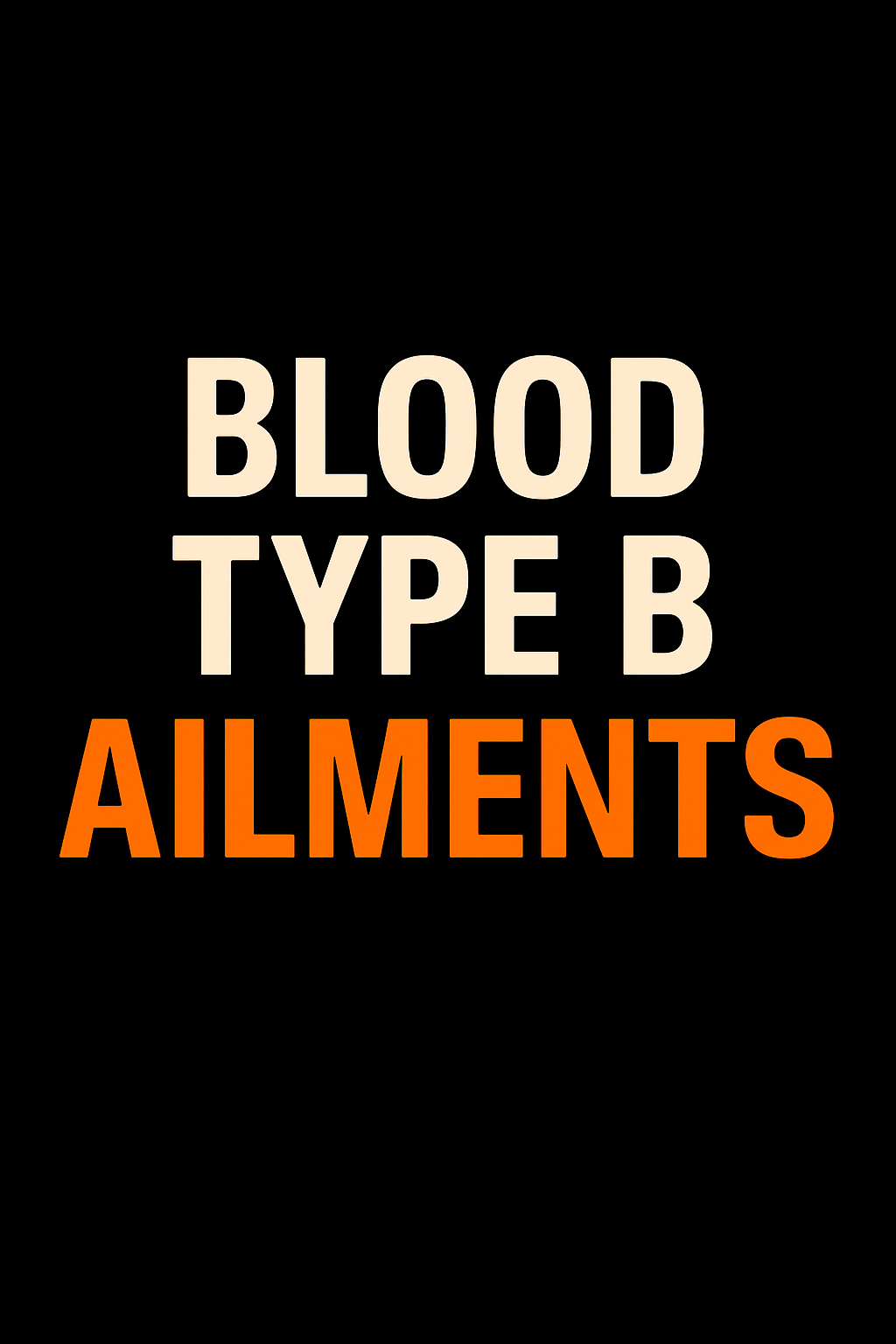🧬 Common Ailments Blood Type B May Experience
While Blood Type B is often praised for its adaptability and balanced immunity, there are unique metabolic and hormonal challenges that can affect overall health if left unaddressed. Understanding these tendencies can help Type B individuals fine-tune their wellness routines for optimal results.
🥩 1. Difficulty Breaking Down Certain Animal Proteins
Although Type B generally handles a wider range of animal proteins than other types, certain meats—especially chicken and pork—contain lectins that interfere with digestive enzymes. These lectins can cause immune system disruptions and make it harder to digest and properly assimilate protein, leading to bloating, fatigue, or inflammation. Lean red meats like lamb and wild game are typically better tolerated.
Solution: Support digestive enzyme activity with supplements that aid in protein breakdown—like CEOrganix Pro-Zymes—and focus on B-type-friendly proteins such as fish, turkey, and lamb.
🧈 2. Poor Metabolism of Saturated Fats
Blood Type B may struggle with metabolizing dense, saturated fats (like those found in processed meats, butter, and full-fat dairy). This can contribute to weight gain, sluggish digestion, and elevated LDL (bad) cholesterol if not managed properly.
Solution: Replace saturated fats with healthy fats such as olive oil, flaxseed oil, and omega-3-rich foods like salmon. Supplementing with Ultimate Omega-3 can also support fat metabolism and cardiovascular health.
⚖️ 3. Adrenal Hormone Imbalance & Stress Sensitivity
Blood Type B individuals are particularly prone to adrenal fatigue and cortisol imbalance under long-term stress. Chronic overproduction of stress hormones may result in insomnia, irritability, stubborn belly fat, and weakened immunity.
Solution: Adaptogenic herbs like ashwagandha, rhodiola, and schisandra—found in CEOrganix Chill—can support adrenal resilience, help regulate cortisol, and improve overall mood.
🩸 4. Higher Blood and Cell Viscosity
Type B may have a natural tendency toward thicker blood or sluggish circulation, which can lead to increased clotting risks, poor oxygen delivery to cells, and higher blood pressure. This can become more pronounced with age, stress, or poor dietary habits.
Solution: Nutrients like nattokinase, L-arginine, beetroot, garlic, and turmeric—available in products like Ultra Beets or Nitro Flow—can support healthy blood flow and reduce cellular viscosity.
🦠 5. Bacterial Overgrowth & Digestive Disruption
A sensitive balance of gut flora is vital for Blood Type B. This group may be more prone to bacterial overgrowth in the small intestine (SIBO), bloating, or inconsistent digestion, especially when consuming foods that don’t align with their blood type.
Solution: Use high-quality, strain-specific probiotics like CEOrganix Ultra Probiotics and add fermented foods (like kefir or kimchi) to help restore microbiome balance.

